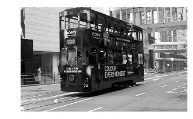题目内容
One day I came home from school, changed my clothes and got ready for work. I worked at a local restaurant in town as a cashier and waiter.

I went to work feeling . And to make matters worse, I was busy that evening. It’s the same thing over and over again, with customers who complain about their food and where they are is too big or too small. Little things like that tend to a lot of us but we manage to deal with them.
Three elderly ladies walked in and sat by the windows. It happened to be the very near where I keep the dirty in the boxes. Trying to keep up with all the dirty tables, customers leaving and coming in and running all over the house, it was crazy. these elderly women were watching I was working to make sure every table was clean and ready for the next customers.
When they their meals, I took their plates back to the kitchen. They talked to me for a while about school, how I was doing, what I was in and what I planned to do in the future.
they were leaving, they walked past me and one of them said to me in a and gentle voice, “You are going places. ”And that was it. They left the and I had tears in my eyes, because they gave me to believe in myself. They my spirit from being down and gave me a to keep on working hard.
People used to tell me that I couldn’t have a career in until I had a degree. I’m now a co-anchor(联合主持人)of a student-produced television . And the best thing is: I’m only 17 years old and I am a senior in high school.
1.A. tired B. excited C. up D. down
2.A. dealingB. helpingC. talkingD. meeting
3. A. satB. seatedC. laidD. dressed
4.A. attractB. avoidC. adjustD. annoy
5. A. employeesB. customers
C. bossesD. employers
6.A. tableB. boxC. spotD. kitchen
7. A. dishesB. roomsC. clothesD. chairs
8. A. menB. womenC. waitersD. bosses
9.A. AndB. Otherwise
C. ButD. So
10. A. whatB. howC. whereD. why
11. A. finishedB. completedC. orderedD. got
12. A. placeB. gradeC. markD. position
13. A. BeforeB. WhileC. AsD. After
14. A. confidentB. loudC. lowD. pleasant
15. A. kitchenB. houseC. restaurantD. table
16. A. abilityB. courage
C. imaginationD. time
17. A. put downB. picked up
C. took overD. pointed out
18.A. causeB. reason
C. presentD. permission
19. A. televisionB. government
C. schoolD. restaurant
20. A. companyB. station
C. showD. advertisement
1.D
2.A
3.B
4.D
5.A
6.C
7.A
8.C
9.C
10.B
11.A
12.B
13.C
14.A
15.C
16.B
17.B
18.B
19.A
20.C
【解析】
【文章大意】作者是一位17岁的中学生, 利用课余时间打工。一天, 在身心疲惫的时候, 一位顾客的一句话使作者对自己的前途重燃希望。那句话是: You are going places(你前途无量)。
1.选D。词汇复现题。由下文中的from being down可以得到暗示。放学后还得去上班作者心里感到很不高兴。后面的to make matters worse(使情况更为糟糕的是)说明此处填贬义词。feeling down意为“闷闷不乐”。
2.2】选A。习语搭配题。作为服务员, 我要与投诉的顾客打交道, 处理他们提出的问题。此处的deal with意为“与……打交道”。
3.3】选B。词语辨析题。seat为及物动词, “坐下”应说be seated, 而A项sit为不及物动词, 不能用于被动语态中。
4.4】选D。词语辨析题。annoy表示“使生气”。因为作者前面提到了顾客的种种抱怨, 因此只能导致雇员的烦恼、生气。句意: 诸如此类的小事容易造成我们雇员的烦恼。故选D。
5.5】选A。逻辑推理题。此处的us和后面的we指“饭店里的员工”, 故A项正确。此处的us与employees为同位语关系。employer雇主, 东家。
6.6】选C。逻辑推理题。前面的by the windows和后面的near where都说明此处填的是“地方(spot)”, the very spot强调“就是那个地方”。
7.7】选A。逻辑推理题。dish盘子; room房间; clothes衣服; chair椅子。服务员在客人走后, 要将吃剩的菜端走, 然后收拾桌子, 供后来的人就餐。所以, 此处要选A项。
8.8】选C。背景常识题。在饭店中, 进进出出的是顾客, 在房子中来回穿梭忙碌的是服务员, 故C项正确。
9.9】选C。句式结构题。虽然餐馆处于一片忙乱的状态, 但是这三位女士在专心地看着我。该空前的crazy给该空提出了暗示。故选C。
10.0】选B。句式结构题。后面的to make sure every table was clean and ready for the next customers表示目的, 故此处指我怎么做才能达到此目的。
11.1】选A。逻辑推理题。根据后面的took their plates back to the kitchen可知她们已经吃完了。且下文中有they were leaving暗示。
12.2】选B。逻辑推理题。她们在临走前, 跟我聊了一会儿, 问我有关学校的情况、在学校学得怎么样、在哪个年级及将来的打算。
13.3】选C。词语辨析题。句意: 当她们离开的时候, 她们走过我身边……根据句意可排除A、D选项; while引导时间状语从句时, 从句中的谓语动词是延续性动词。此处as表示“当……时候”。
14.4】选A。词语辨析题。confident自信的; loud大声的; low低的; pleasant令人愉快的。句意: ……她们从我身边走过时, 有一个人用自信而温和的声音说。由下文的You are going places. (你前途无量。)可以推测说话者的语气。因为说话人在鼓励作者, 所以只有A项符合语境。
15.5】选C。词汇复现题。由第一段中给出的故事背景I worked at a local restaurant in town as a cashier and waiter. 可知答案。
16.6】选B。逻辑推理题。根据文意可知, 别人给予了作者自信的“勇气”, 作者才得以重新振作起来。
17.7】选B。词语辨析题。三位女士使我重新获得自信的勇气, 并使我的情绪不再沮丧。put down记下; 镇压; pick up one’s spirit鼓起勇气; take over接管; point out指明(出)。
18.8】选B。词语辨析题。三位女士给了我要继续努力的理由。在她们的鼓舞下, 我决心继续努力。reason表示某种行为的原因; cause表示某种现象的起因。故正确选项为B。
19.9】选A。词汇复现题。根据最后一段中的I’m now a co-anchor of a student-produced television. . . 可知。
20.20】选C。逻辑推理题。作者现在是联合主持人(co-anchor), 所以肯定是电视节目(show)的联合主持人。

 阅读快车系列答案
阅读快车系列答案